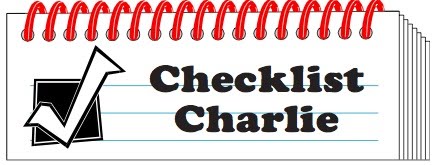The first rule of helping friends at the hospital is: “Take Care of the Caretaker.” The patient is being cared for by a world of professional folks, like doctors and nurses, plus family.
On the other hand, the primary caretaker, usually the spouse or a grown child of the patient, is feeling the full effect of the crisis.
Is there any chance their work and normal activities will wait? It sure doesn’t feel like it at the time! That abrupt change of schedule and lifestyle means you have a person with considerable overload.
So, what can you do to help?
-Long visits or too many visitors is exhausting for everyone. Do not interrupt if the patient is asleep, just ease out quietly and leave a note for later. If the patient is imposed upon and worn out, then you put the caretaker in the awkward position of having to get rid of you. Definitely not helpful. A quick hug or hello is encouraging.
- Do not bring a death-watch mentality with you. Don’t drop everything and rush to be by their side because you think the person is about to die. Instead focus on having a close relationship all the time so you will be at peace when your friend actually does die, which is sure to happen eventually to all of us anyway. Say the loving, important things each time you are together, rather than burdening the family with your guilty conscience during a crisis.
-Prayer should be discreet rather than an opportunity to pass along the latest news. It is best to use first names only, or better yet, pray in your own prayer closet and do not take it upon yourself to pass along the request. Let the family ask for prayer from the people they trust. Too much attention can mean there will be too many visitors. Too many visitors can actually work against recovery, the very thing you are praying for.
-If you are there to help, do not take over. When a person arrives at the hospital to help, it is tempting to play the role of hero; the guy who rushes in from somewhere else to fix the problem.
Okay, I know I sound grumpy when I should be thankful for my fellow-members of the B Team, that team of close friends who are there to support the patient and the main caregiver. But there is nothing worse than someone who comes to take the next shift and just stirs up a lot of commotion.
So who makes a good teammate?
-First and foremost, patient doctors who know what they are doing and are secure and patient enough to listen and hear the patient and caregiver when they speak.
-Next, nurses who are tender, competent, and professional. They are an incredible encouragement both to the patient and to the caregiver.
-Family members that come to help and blend in.
-Friends who take the time to write a cheerful, funny, affectionate note.
-Close friends that can stop by for a happy, short visit when the patient is feeling well enough to be bored. Did I mention short? Oh, yes, short. That’s important.
-Close friends who can water the caregiver’s plants, feed the pets, pick up the newspaper and mail, arrange to have the lawn mowed, or make sure the laundry gets done.
-One administrative-type friend who will organize a casserole committee to see that there is food in the days after the patient gets home. Bring food every other day, not daily, because too much food just gets thrown away or clutters the fridge, creating another task.
Here in East Texas, there is a long tradition of coming to the aid of our neighbors.
You can’t help but notice it when you spend a few days at the hospital.
Yep, East Texans are some neighborly folks.
Which reminds me, our list of favorite charities is coming up just in time for holiday giving, so now is the time to send me your favorites. I am looking forward to hearing from you!
Cathy Primer Krafve, aka Checklist Charlie, spent her childhood in East Texas where she enjoyed the benefit of family and friends who demonstrated the finer points of being neighborly. She welcomes all comments at CaeKrafve2@aol.com
Wednesday, April 30, 2008
Subscribe to:
Post Comments (Atom)

No comments:
Post a Comment